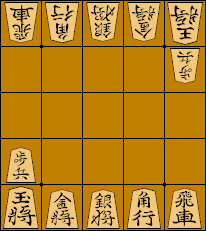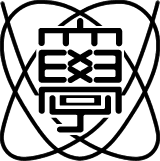Related Research Articles

Gomoku, also called Five in a Row, is an abstract strategy board game. It is traditionally played with Go pieces on a 15×15 Go board while in the past a 19×19 board was standard. Because pieces are typically not moved or removed from the board, gomoku may also be played as a paper-and-pencil game. The game is known in several countries under different names.

Go is an abstract strategy board game for two players in which the aim is to surround more territory than the opponent. The game was invented in China more than 2,500 years ago and is believed to be the oldest board game continuously played to the present day. A 2016 survey by the International Go Federation's 75 member nations found that there are over 46 million people worldwide who know how to play Go, and over 20 million current players, the majority of whom live in East Asia.

Computer Go is the field of artificial intelligence (AI) dedicated to creating a computer program that plays the traditional board game Go. The field is sharply divided into two eras. Before 2015, the programs of the era were weak. The best efforts of the 1980s and 1990s produced only AIs that could be defeated by beginners, and AIs of the early 2000s were intermediate level at best. Professionals could defeat these programs even given handicaps of 10+ stones in favor of the AI. Many of the algorithms such as alpha-beta minimax that performed well as AIs for checkers and chess fell apart on Go's 19x19 board, as there were too many branching possibilities to consider. Creation of a human professional quality program with the techniques and hardware of the time was out of reach. Some AI researchers speculated that the problem was unsolvable without creation of human-like AI.

Minishogi is a modern variant of shogi. The game was invented around 1970 by Shigenobu Kusumoto of Osaka, Japan. The rules are nearly identical to those of standard shogi, with the exception that it is played on a 5x5 board with a reduced number of pieces, and each player's promotion zone consists only of the rank farthest from the player.
Tokyo Game Show, commonly known as TGS, is a video game trade fair and convention held annually in September in the Makuhari Messe, in Chiba, Japan. It is presented by the Computer Entertainment Supplier's Association (CESA) and Nikkei Business Publications, Inc. The main focus of the show is on Japanese games, but some international video game developers use it to showcase upcoming releases/related hardware. The duration of the event is four days. The first two days of Tokyo Game Show are open only to industry attendees (business) and the general public can attend during the final two days.

The University of Electro-Communications is a national university in the city of Chōfu, Tokyo, Japan.
There are a number of competitions and prizes to promote research in artificial intelligence.
Computer shogi is a field of artificial intelligence concerned with the creation of computer programs which can play shogi. The research and development of shogi software has been carried out mainly by freelance programmers, university research groups and private companies. By 2017, the strongest programs were outperforming the strongest human players.
Crazy Stone is a Go playing engine, developed by Rémi Coulom, a French computer scientist. It is one of the first computer Go programs to utilize a modern variant of the Monte Carlo tree search. It is part of the Computer Go effort. In January 2012 Crazy Stone was rated as 5 dan on KGS, in March 2014 as 6 dan.
The Longxing is a Go competition in China. It is the Chinese equivalent of the Japanese Ryusei.
AlphaGo is a computer program that plays the board game Go. It was developed by the London-based DeepMind Technologies, an acquired subsidiary of Google. Subsequent versions of AlphaGo became increasingly powerful, including a version that competed under the name Master. After retiring from competitive play, AlphaGo Master was succeeded by an even more powerful version known as AlphaGo Zero, which was completely self-taught without learning from human games. AlphaGo Zero was then generalized into a program known as AlphaZero, which played additional games, including chess and shogi. AlphaZero has in turn been succeeded by a program known as MuZero which learns without being taught the rules.
Darkforest is a computer go program developed by Meta Platforms, based on deep learning techniques using a convolutional neural network. Its updated version Darkfores2 combines the techniques of its predecessor with Monte Carlo tree search. The MCTS effectively takes tree search methods commonly seen in computer chess programs and randomizes them. With the update, the system is known as Darkfmcts3.

Ke Jie is a Chinese professional Go player of 9 dan rank. He was born on August 2, 1997, in Liandu District, Lishui City, Zhejiang Province.
Zen, sold as Tencho no Igo in Japan, is a closed source Go playing engine developed by Yoji Ojima (尾島陽児), a Japanese Go programmer.
Fine Art is a Go-playing computer program created by Chinese media company Tencent.

A professional shogi player is a shogi player who is usually a member of a professional guild of shogi players.
The Eiō (叡王) is one of the eight major titles of professional shogi cosponsored by Fujiya Co. and the Japan Shogi Association (JSA). The tournament initially started out as a non-title tournament in 2015, but was upgraded to major title status in May 2017. The current Eiō title holder is Sōta Fujii.
The MLily Cup, officially the MLily Meng Baihe Cup World Go Open Tournament is an international Go tournament. It is organized by the International Go Federation and the Chinese Weiqi Association. The tournament was created in 2013 and is held every two years.
Xie Ke is a Chinese professional Go player.
Gu Zihao is a Chinese professional go player. He is the winner of two major international championships: the Samsung Cup in 2017 and the Quzhou Lanke Cup in 2023.
References
- ↑ "The Mysterious Game of Go". HMH in the News. June 2014. Retrieved 15 April 2016.
- ↑ "Outline". The Tenth UEC Cup Computer Go. Retrieved 5 April 2017.
- ↑ "AI 竜星戦 2017" (in Japanese). igoshogi.net. 26 October 2017. Retrieved 20 November 2017.
- ↑ "31 computer programs face off at int'l go board game contest in Tokyo". Kyodo News. 19 March 2016. Archived from the original on 27 April 2016. Retrieved 15 April 2016.
- ↑ "The third championship (the ninth UEC cup computer Go Tournaments) that it is two years since the last Zen". Nihon Ki-in. 21 March 2016. Archived from the original on 19 March 2017. Retrieved 18 March 2017.
- ↑ "The 12nd Computer Go UEC Cup" . Retrieved 23 January 2021.
- ↑ "UEC杯"AI盛会"VisionGo全胜夺冠 烂柯围棋首秀喜获亚军". 163.com (in Simplified Chinese). 21 March 2021. Retrieved 21 March 2021.
- ↑ "Crazy Stone computer Go program defeats Ishida Yoshio 9 dan with 4 stones". Go Game Guru. 24 March 2013. Archived from the original on 1 February 2016. Retrieved 15 April 2016.
- ↑ ""Crazy Stone" Computer Go Program Defeats Ishida at Japanese UEC Cup". American Go Association. 27 March 2013. Retrieved 15 April 2016.
- ↑ "电圣战腾讯AI绝艺胜一力辽 日本新星连输两大AI" (in Chinese). QQ.com. 26 March 2017. Retrieved 26 March 2017.